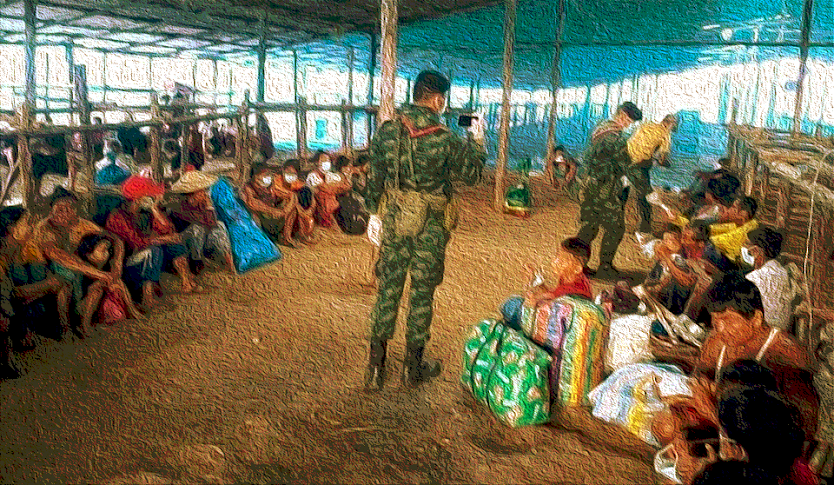Myanmar Spring Chronicle: Thailand’s Aid Plan for Myanmar War Refugees Gains Momentum
Published by MoeMaKa on February 26, 2024
Thailand’s move to provide humanitarian aid to war refugees fleeing conflict-ridden Myanmar has taken a significant step forward, signaling a potential shift in regional dynamics amidst escalating tensions.
Following Thailand’s recent election, which saw the Pheu Thai Party clinch the prime minister position, analysts have observed a cautious approach by the Thai government to navigate the delicate balance between civilian governance and military influence. Amidst growing concerns over the impact of Myanmar’s military coup on regional stability, Thailand has emerged as a key player in addressing the humanitarian crisis unfolding along its border.
In a bid to tackle the multifaceted challenges stemming from the crisis in Myanmar, the Thai government has announced plans to initiate a pilot program aimed at providing assistance to war refugees. This initiative, set to commence in the first week of March, underscores Thailand’s commitment to addressing the pressing humanitarian needs of those affected by the conflict.
The Thai Foreign Minister’s recent visit to Mae Sot, a Thai-Myanmar border town, to assess conditions for refugee assistance reflects the government’s proactive approach to addressing the crisis. Discussions held at international forums, including the recent conference in Davos, Switzerland, have further highlighted Thailand’s commitment to providing support to war refugees in Myanmar.
Despite longstanding ties between the Thai and Myanmar militaries, characterized by frequent high-level meetings and discussions on border security issues, Thailand’s humanitarian aid efforts mark a departure from traditional military-focused engagements. Instead, the focus has shifted towards addressing the urgent needs of vulnerable populations affected by the conflict.
However, Thailand’s decision to collaborate with the Myanmar Red Cross in its aid program has drawn criticism from the National Unity Government (NUG) and ethnic armed groups. They argue that the Myanmar Red Cross, operating under the control of the military council, lacks independence and may not effectively reach refugees in need. Calls have been made for Thailand to engage directly with the NUG to ensure transparent and effective aid distribution.
As preparations for the aid program intensify, concerns linger over the scope and efficacy of assistance, particularly in light of the widespread displacement and suffering experienced by millions of war refugees across various regions of Myanmar. While the aid program represents a crucial step towards addressing immediate needs, challenges remain in ensuring equitable access to humanitarian assistance for all affected populations.
With fighting continuing unabated in many parts of Myanmar, the urgent need for humanitarian aid underscores the importance of regional collaboration and support. As Thailand takes proactive steps to address the crisis, hopes are high that coordinated efforts will provide much-needed relief to those grappling with the devastating impact of conflict.

